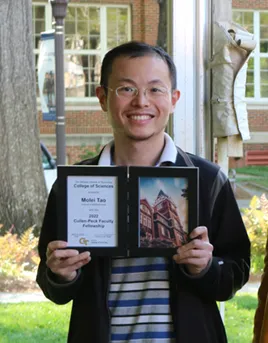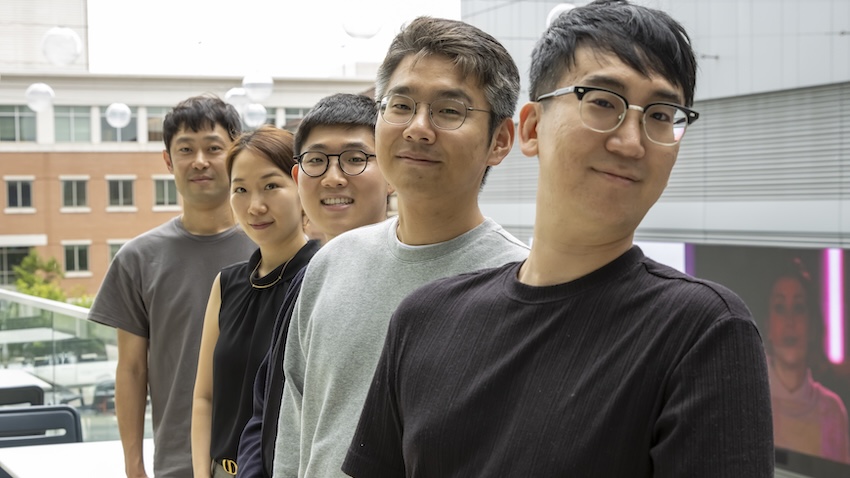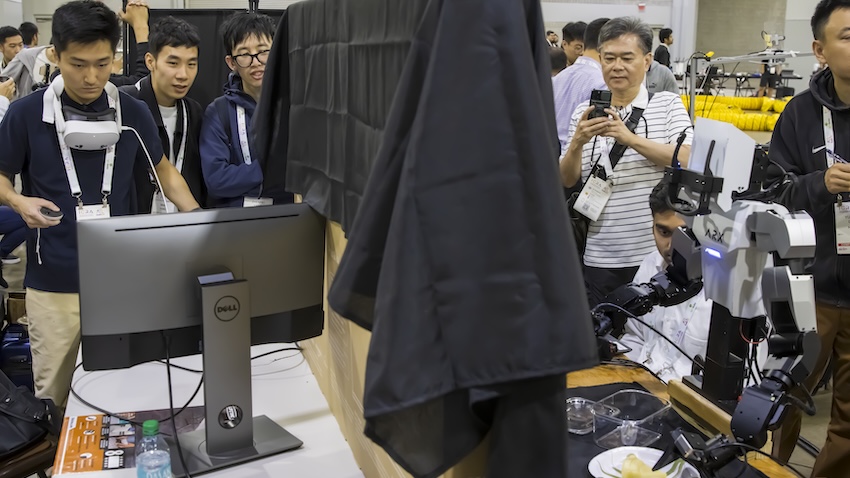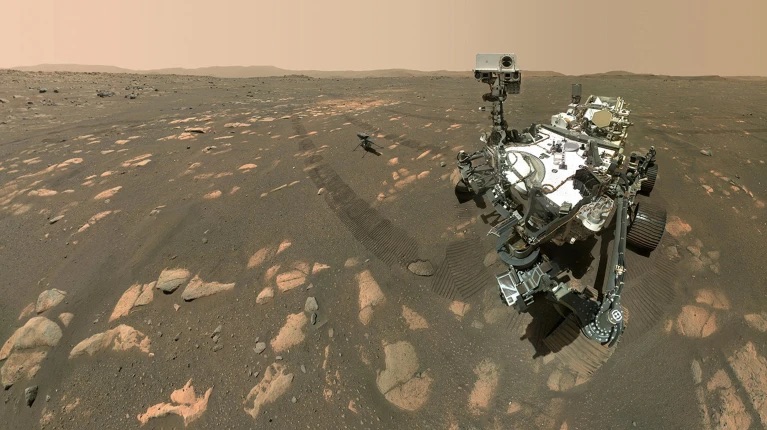Oct. 31, 2024
School of Mathematics Associate Professor Molei Tao has been honored with a Sony Faculty Innovation Award for his work on the foundations of machine learning, particularly diffusion generative models. The award, which includes a $100,000 grant, is part of an international program sponsored by SONY that provides funding for cutting-edge academic research across a wide range of disciplines.
Tao is an applied and computational mathematician who designs and synergizes mathematical tools to solve practical problems. Recently, he has focused on the applications of these tools to machine learning. Tao works on multiple subareas of machine learning, including deep learning theory, probabilistic methods, generative modeling, and artificial intelligence for science (“AI4Science”).
"Molei is doing breakthrough work on machine learning and artificial intelligence,” says Mike Wolf, chair of the School of Mathematics. “It is wonderful to see him recognized by Sony, both for his accomplishments so far and also his promise for the future. His unique perspectives, informed by an astonishing deep breadth of understanding of mathematics, have already made him one of the more prominent researchers in this extremely competitive and important field. I know that this award will fuel even more impactful works. We are just thrilled to have Molei on our faculty in the School of Mathematics."
Revolutionizing Generative AI
The award recognizes Tao’s research on the mathematical and algorithmic aspects of diffusion generative modeling, which is considered one of the foundations of modern Generative AI. Using advanced machine learning algorithms, these models have revolutionized the generation of image, video, and 3D content.
“Exciting products such as ChatGPT, Stable Diffusion, and Sora are generative AI tools, and a good number of them are powered by diffusion models,” explains Tao. “The way the magic works is you basically give a machine learning model a collection of training data, and then the algorithm can generate more content that is similar to the training data. The ability of generating new content is called generative modeling. Diffusion model is one of the latest technologies for generative modeling.”
Tao’s work aims to make diffusion models more versatile and scalable. He hopes to broaden their application and possibly create the next generation of generative modeling tools.
“The large-scale impact of this research is to make generative AI more accessible, more creative, safer, and more trustworthy,” he adds.
To learn more about Tao's research, visit his blog or follow him on Twitter at @MoleiTaoMath.
News Contact
Amanda Cook
Communications Officer II
College of Sciences
Editor and Contact: Lindsay C. Vidal
Assistant Director of Communications




